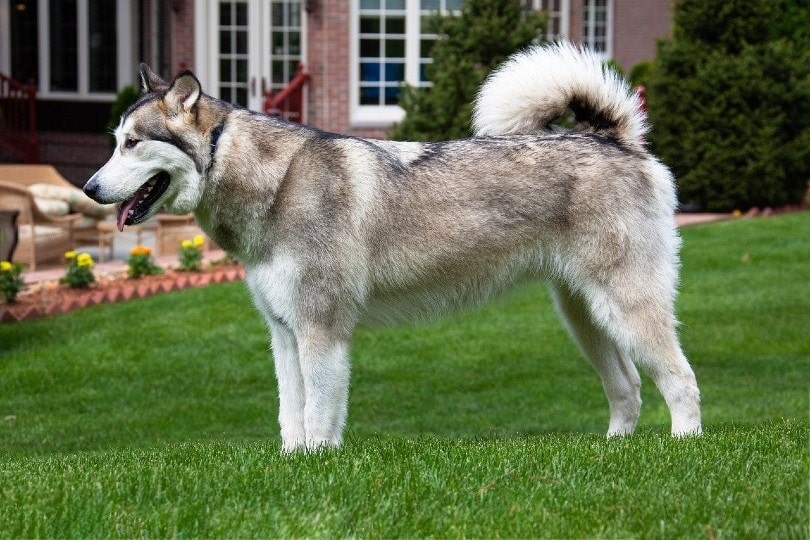13 Maltese Dog Pros & Cons: What to Know Before You Get One
By Kit Copson
Updated on
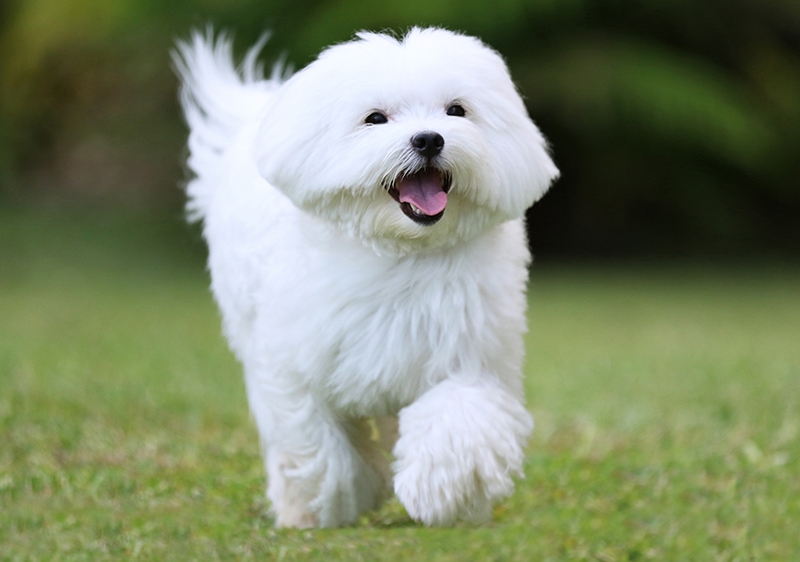
Click to Skip Ahead
If the charming Maltese has caught your eye, we totally get the appeal. Not only are these little dogs seriously cute, but they also have many positive character traits that make them very easy to love.
That said, there are a few things you need to be aware of if you’re considering welcoming a Maltese into your world. This post weighs up both the positive points and the challenges of parenting a Maltese dog. Let’s kick it off with the pros.
The 7 Maltese Dog Pros
1. Temperament
Maltese dogs that have been properly socialized are typically incredibly sweet-natured. The Maltese dog’s gentle disposition allows them to get along well not only with family but also with new people and other pets.
They’re also vivacious, playful, and have a tendency to be cuddly little souls that can’t get enough of a warm lap. That said, each dog has their own character depending on genetics, background, and socialization, so some Maltese might be on the loving but dignified side, whereas others might be seriously in-your-face with their affection.
They fit nicely (quite literally) into any loving family unit, but they may be best suited to families with older children rather than very young children. We’ll explain more about this further down.

2. Suitability for Apartment Living
The Maltese dog’s miniature physique and moderate exercise needs make them an ideal candidate for smaller homes and apartment living. They’re the kind of dogs that are easy to please—as long as they get enough daily exercise and can be close to the people they love, they’re not fussed about huge yards to bounce around in (though these are certainly a bonus!).
3. Minimal Shedding
All dogs shed, but the Maltese dog is not a heavy shedder. For this reason, they are labeled “hypoallergenic”, which means they may (emphasis on “may”) be more suitable for people with allergies than some other breeds.
However, all dogs have the potential to trigger allergic reactions because they all shed, even if they don’t shed much—just something to take into consideration if you’re an allergy sufferer.

4. Long Life Expectancy
Another big bonus to parenting a Maltese is that they have a long life expectancy of between 12 and 15 years. This is pretty typical for most small breeds—unfortunately, larger dogs often have shorter expected life spans.
Maltese dogs are generally healthy, but it’s still important to be vigilant for any changes in your dog that may indicate an illness. Making sure you’re feeding your Maltese a high-quality diet is another way to contribute towards good health, as is ensuring they get enough exercise.
5. Alertness
Though Maltese dogs are tiny and don’t make the most imposing guard dogs, they’re known for being very alert and having a bold streak, so they likely won’t hesitate to let you know if someone’s approaching your home.
This can be both useful and irritating—the bark might scare off a potential intruder, but it’s a good idea to teach a “quiet” cue in case they react to every single person who knocks on your door or passes by your home.
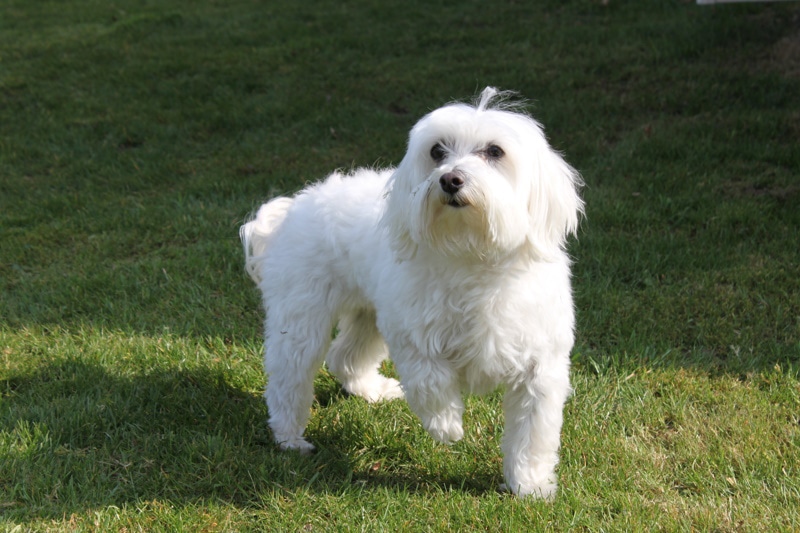
6. High Intelligence
The Maltese is much more than just a pretty face (and coat). These dogs are super smart and are known for being pretty easy to train because they’re so eager to please. Maltese dogs are also surprisingly athletic, so do well in agility and obedience challenges due to their capacity to learn quickly and follow commands.
7. Moderate Exercise Needs
Some dog breeds need up to 2 hours of physical exercise per day, but the Maltese is much easier to please. They need around 30 minutes of walking per day, ideally split into two short walks. You can also play with your Maltese at home in a few “sessions”, and provide some mentally stimulating toys to entertain them throughout the day and prevent destructive behavior.
The 6 Maltese Dog Cons
1. Breeder Prices
If you’re thinking about buying a Maltese from a breeder, you can expect to pay anywhere between $600 and $3,000—and this doesn’t include the cost of all the supplies you’ll need to buy, like crates, beds, brushes, food, and parasite preventatives.
An alternative to buying from a breeder is adoption. You may struggle to find purebred Maltese dogs up for adoption (though it’s possible), but there are also beautiful Maltese mixes to consider.
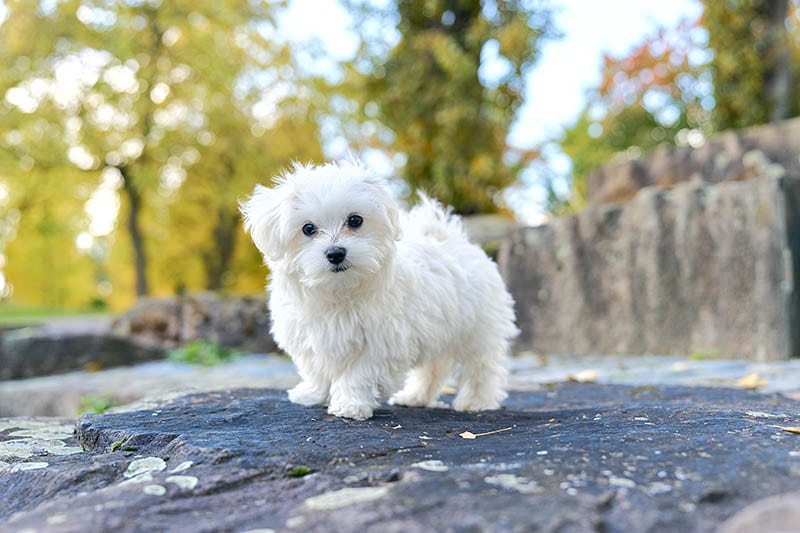
2. Fragility
The Maltese’s larger-than-life personality, boldness, and general hardiness can make you forget the fact that these dogs are actually tiny. This doesn’t mean they’re going to keel over at any moment, but it does mean that extra care should be taken (as with all toy breeds) to make sure they don’t get injured when roughhousing with other dogs (especially larger dogs) or playing with kids.
3. Grooming Needs
Though the Maltese is a light shedder, if their coat is kept long, they’re going to need regular TLC to keep it free of tangles, knots, and matting. Ideally, a Maltese needs daily brushing to keep the coat as smooth as possible.
You might also want to invest in a pet-safe detangling spray to make brushing more manageable, get your pooch smelling fresh, and add an extra sheen. Your Maltese will need a bath every few weeks, as it’s easy for their long coats to pick up dirt and debris.
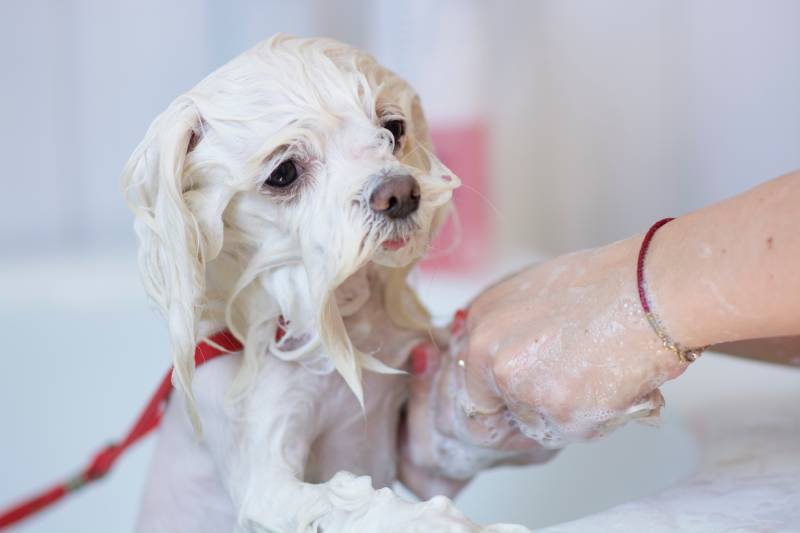
4. Potential for Separation Anxiety
In breeds renowned for their sensitivity and strong attachment to their owners, separation anxiety is a strong possibility if the dog doesn’t form a positive view of spending a certain amount of time alone. It’s best to start getting your Maltese used to spending time alone gradually from a young age to reduce the risk of them stressing out when you leave the house.
Starting small by simply leaving the room for a few moments and rewarding your puppy when you get back is a great way to start. You can also provide fun toys like obstacle feeders to keep them busy while you’re gone. As your Maltese gets older, the time they spend alone can be gradually increased.
5. Potential for Stubbornness
Of course, every Maltese has a different personality, so it might not even be an issue for your Maltese, but this breed is famously stubborn and a tad bossy, which can make housetraining difficult if you don’t use lots of positive reinforcement.
We get it—it can be tough, but don’t give in to your frustration if your Maltese is of the headstrong variety. Use their devotedness to your advantage and shower on the praise and tasty rewards when they get something right, and be consistent with this.

6. May Not Do Well with Very Young Kids
Okay, so, this one is a generalization and doesn’t apply to every Maltese. Many well-socialized Maltese get on perfectly well with small kids, but one of the things that have cropped up a few times in our research is that Maltese can sometimes be snappy or irritable with them.
This is much more likely if the child is too rough with the Maltese (which shouldn’t be a problem as long as the two are supervised together) due to not understanding boundaries yet or if the Maltese has not been socialized around children from a young age.
If you’re welcoming a Maltese into a home with kids, whether they’re big or little, remember the two key things: supervision and socialization.
- Related read: How Big Does a Maltese Get (With Growth & Weight Chart)
Conclusion
There are innumerable wonderful Maltese traits including high intelligence, adaptability, and a sweet disposition, but as is the case with any dog breed, you may face a few challenges along the way.
We recommend looking at each dog as an individual, as generalizations like “Maltese dogs are stubborn” and “Maltese dogs can be snappy with kids” shouldn’t be taken to mean that every Maltese dog will definitely have these traits, especially since a lot depends on genetics and how effectively a dog has been socialized.
Learning about the breed as a whole is a great way to get an idea of what your future pooch might be like, but it’s no substitute for actually getting to know an individual dog.
Featured Image Credit: Kimrawicz, Shutterstock




